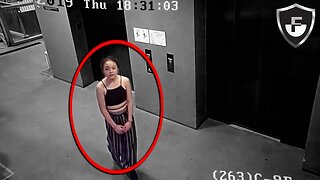Premium Only Content

Prison of the Mind: How Multitasking Is Hazardous to Your Productivity
Prison of the Mind: How Multitasking Is Hazardous to Your Productivity
Multitasking. It diminishes productivity, creativity, impairs cognitive ability, and increases depression and social anxiety. Yet, there is an insistence in our society that multitasking is absolutely necessary to be a good employee, parent, and partner.
Multitasking has become the norm in today's society. We are constantly bombarded with stimuli - texts, emails, phone calls, and social media notifications, and we feel the need to respond to them all as quickly as possible while being asked to do more and more things at once.
What many people don't realize is that multitasking can actually be quite harmful to your productivity, making you accomplish less in the time multitasking is “saving” you. Further, studies have shown that multitasking impairs cognitive ability and lowers IQ. It can also increase depression and social anxiety. In essence, you become a prisoner in your own mind, trapped between your brain telling you one thing at a time and external societal pressure for you to do everything at once.
The brain is designed to focus on one task at a time. When we try to focus on multiple tasks at once, our brain is constantly switching between the tasks, which takes up a lot of energy and reduces our productivity. The loss of energy can result in headaches or tiredness. In addition, multitasking can actually lead to cognitive overload, which causes us to make more mistakes and reduces our ability to learn new information.
What are examples of multitasking?
Multitasking comes in many forms. It may be doing two tasks at once, like answering an email and answering the phone, or it may be simply listening to a podcast while you're working. The results are the same. You think you are getting a lot accomplished, but in reality, mistakes are made, information is missed, especially in conversation, or simply have to redo the tasks over again. Multitasking is as much about what you are missing as what you are achieving.
So why is it so hard to resist the temptation to multitask?
The brain is hardwired to crave stimulation. Partly, this stimulation craving is leftover from the days of the dinosaur. Our minds were constantly working in survival mode, always looking for danger, food, and shelter. In the modern world, the “dinosaur” is the workplace or family and all of the modern demands. When we're constantly switching between tasks, our brains release a chemical called dopamine, which makes us feel energized and happy.
How can we stop multitasking?
If you want to be more productive and less stressed, it's important to learn how to resist the temptation to multitask. Focus on one task at a time, and give it your full attention. Open no more than 2 browser tabs at a time. Listen to music, rather than podcasts while working. Set up a block of time to respond to emails and text messages. Set your phone and computer to “work” mode to minimize distractions. You'll be surprised at how much more you can get done, and how much better you'll feel in the process.
What can we do to combat the negative effects of multitasking?
One suggestion is to switch to a "single tasking" mindset. When you are working on one task, focus all your attention on that task and don't allow yourself to be distracted. This may be difficult at first, but with practice, it can become second nature.
Another suggestion is to take breaks often. When you allow yourself time to relax and rejuvenate, you'll be more productive when you return to your tasks. Breaks can also help you to avoid cognitive overload.
Finally, a suggestion that is helpful to really focus on the task at hand is to use a timer and schedule 15 minutes for the work. By concentrating on the task being worked on, you will likely be able to finish in the allotted time. This is called the Pomodoro technique. Your productivity will boost as a result.
Ultimately, multitasking is not the answer to getting things done quickly and efficiently. By taking the time to focus on one task at a time and allowing yourself breaks, you can actually increase your productivity and improve your learning ability.
If you’d love a customized strategy based on my 20 years of experience working with people just like you, hop on my calendar at http://meetwithleeann.me
You can share this video by using this link: https://youtu.be/7y2UG36dNRA
Connect with me on social:
Instagram: https://www.instagram.com/leeannbonnellcoaching
LinkedIn: https://www.linkedin.com/in/leeannbonnell
Facebook: https://www.facebook.com/groups/gritandgrace2
Testimonials found on this website are actual client reviews of Lee Ann Bonnell and Lee Ann Bonnell Coaching. Prospective clients may not obtain the same or similar results. The information contained on this website is intended for general informational purposes only.
Video hashtags: #LifeCoach #Multitasking #Productivity #gritandgrace
-
 LIVE
LIVE
TonYGaMinG
2 hours ago🟢 ABI WITH FRIENDS | 🍩JOE DONUTS | 😶 🌫 VLADSGAMINGCARTEL |
73 watching -
 21:24
21:24
marcushouse
8 hours ago $0.02 earnedStarship Flight 10: Go or No? 🚀
4.22K7 -
 LIVE
LIVE
MrR4ger
14 hours agoSUNDAY FUNDAY w/ R4GER - VARIETY / DIABLO 4/ FOR HONOR / ETC?
112 watching -
 5:40
5:40
WhaddoYouMeme
3 days ago $0.13 earnedThey’re Calling This the End of Masculinity
5.95K4 -
 15:24
15:24
Tactical Advisor
17 hours agoBest 2011 of 2025 | Bul Armory Ultralight Pro
4.59K -
 27:31
27:31
True Crime | Unsolved Cases | Mysterious Stories
2 days ago $0.03 earnedThe Hong Kong Schoolgirl Mystery – 5 Mysterious Unsolved Cases (Part 8)
5.38K1 -
 7:19
7:19
China Uncensored
23 hours agoChina is DONE in the South China Sea
6.67K17 -
 LIVE
LIVE
Joe Donuts Live
4 hours ago🟢 Loot Rats Unleashed: Arena Breakout Chaos! | Joe + Tony + Vlad
281 watching -
 30:37
30:37
Degenerate Plays
16 hours agoThis College Is Out Of Control - GTA Online : Part 9
4.84K -
 16:28
16:28
Mrgunsngear
3 days ago $0.49 earnedBeretta 92XI SAO Sabbia Review - A Few Surprises
7.53K6